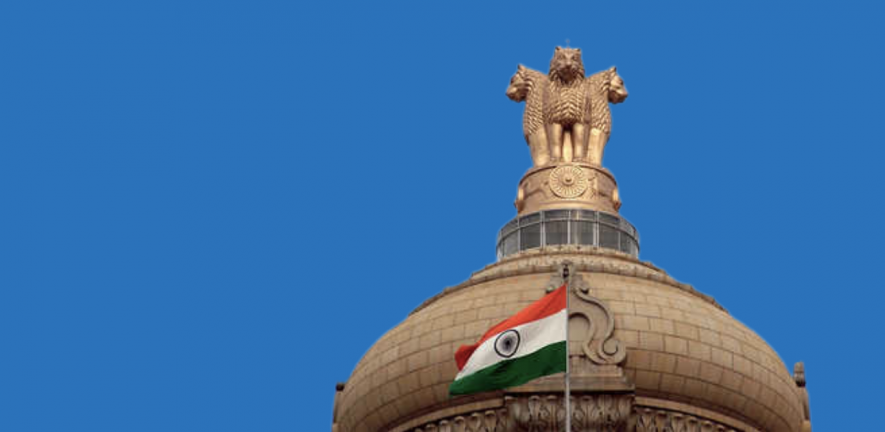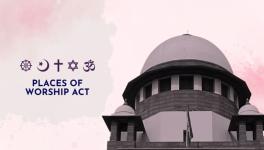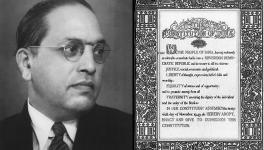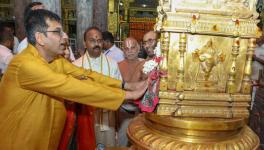Deleting Democracy: Need for Limiting Speaker’s Power of Expunction

There are no concrete criteria guiding the Speaker’s powers of expunction, Speakers have engaged in expunction as a belated exercise driven by political considerations, and the media continue to freely publish expunged statements. Speaker’s discretion in expunction needs to be curtailed.
—
American author Frank Sonnenberg has said, “You don’t win a debate by suppressing discussion; you win it with a better argument.”
The Indian Parliament is premised on the idea of debate and discussion to ensure the accountability of the executive. The freedom of speech and immunity from criminal action for speaking their mind is essential for Members of Parliament (MPs) to exercise their function of exercising control over the executive in an effective manner. This right has been recognised and enshrined in the Constitution in the form of Article 105 (for Parliament) and Article 194 (for state legislatures).
Despite such comprehensive protection for the freedom of MPs to voice their opinions in the Parliament, ruling parties and presiding officers of the Houses have often used multiple tools to stifle the voice of dissent. One such measure which has been used extensively in recent times is the power of the presiding officer to expunge statements from the official record.
This article proceeds in three parts. First, the author looks at the Constituent Assembly Debates (CAD) to understand the scope of freedom of speech that the framers envisaged for MPs. Second, the author looks at a particular instance of the expunging of parts of the speech made by Wayanad MP Rahul Gandhi in the context of the Lok Sabha Rules and Constitutional principles. Finally, the author proposes some solutions to the misuse of the Speaker’s discretion in expunging statements and suppressing dissent.
What was the intent of the framers of the Constitution with regard to the publication of proceedings of the Parliament?
One of the major debates on Article 105 related to the freedom of the press to publish the proceedings of the House. Some members were of the view that extending the privilege of members to publish speeches outside Parliament would amount to misuse of such immunity.
However, the majority were of the view that freedom of the press needed to be protected for two reasons:
First, the public may not have easy access to government publications like the record of the House as they do to press reports and news broadcasts.
The expunction of any statement made on the floor of the House amounts to an erasure of history and deprives officials and intelligentsia from making informed and meaningful contributions to public policy and debate.
Second, the fear of the privilege being misused would not arise since the Speaker would have the power to stop a member from making defamatory, incendiary or inappropriate statements in the House itself. Such statements having been prevented from being made and expunged from the record of the House would not be published in the official record. The freedom of the press would extend only to publishing those proceedings of the House that had been deemed fit for inclusion in the official record.
There are three major takeaways from these debates:
First, the circulation of the proceedings of the House is deemed to be essential for the effective functioning of the Parliament. The framers found it necessary for the public to be made aware of the issues that their representatives were raising in Parliament to ensure accountability.
Second, it was expected that Speakers would pull up members or express their displeasure for making inappropriate statements before exercising the power of expunction.
Third, the press does not have the right to publish those parts of speeches that have been expunged from the official record of the House. This position has also been upheld by the Supreme Court in Pandit M.S.M. Sharma versus Shri Sri Krishna Sinha & Ors. (1958).
The official record of Parliamentary proceedings is of great importance, and there is a need to ensure that expunction is not arbitrary or politically motivated. The official record is the primary source for legislators, scholars, bureaucrats, lawyers, judges and students, among others, who may wish to understand the legislature’s opinions and concerns. Hence, the expunction of any statement made on the floor of the House amounts to an erasure of history and deprives officials and intelligentsia from making informed and meaningful contributions to public policy and debate. This is bolstered by the fact that currently there are no other chronological or complete records of House proceedings, apart from the official record available on government websites.
The importance of a comprehensive official record can be understood through a hypothetical about the CAD. If the power of expunction had been indiscriminately used (as is being done now in the Parliament) in the CAD, the judiciary, legislators and scholars would have been poorer in their knowledge about the framers’ aims and concerns. They would have been deprived of a valuable source to understand the constitutional values underlying various provisions. Multiple judgements that have relied on the CAD to deliver a constitutional interpretation of contested provisions and further fundamental rights would have never been delivered. Similarly, future generations may have been handicapped by the expunction of substantive portions of speeches from the official record and deprived of an understanding of considerations that shaped legislators’ opinions.
It is in the context of these takeaways and the importance of the official record that we will now discuss the Speaker’s powers of expunction and a specific instance of expunging an MP’s response to the President’s address.
Why was the recent expunction of Rahul Gandhi’s remarks in Parliament unprincipled?
It is important to understand the context in which the Wayanad MP made his speech. In light of the allegations of stock manipulation and accounting fraud made by United States-based investment research firm Hindenburg Research against the multinational conglomerate, the Adani group, the Opposition parties had been demanding a Joint Parliamentary Committee probe. They had accused the government of aiding the meteoric rise of the conglomerate.
There are at least 17 expunctions from Gandhi’s speech, almost all of which question the link between the Prime Minister and Adani. There is no clarity about the criteria or rationale for the expunctions. The Speaker does not indicate at any point in time to Gandhi during his speech that it had objectionable content and may be expunged from the official record.
This was not the first time that Opposition parties have accused the government of being hand-in-glove with corporates. The functioning of some major regulatory institutions like the Securities and Exchange Board of India was also called into question by the Supreme Court in light of Hindenburg’s allegations. The issue was of public importance given that the State Bank of India and the Life Insurance Corporation had invested substantially in Adani shares when most mutual funds were doubtful of their investment worthiness.
The author analysed the MP’s speech by comparing videos of his speech with the uncorrected official record of the Lok Sabha. There are at least 17 expunctions from his speech, almost all of which question the links between the Prime Minister (PM) and Adani group chairperson and founder, the billionaire industrialist Gautam S. Adani. There are three main observations about the nature of the statements expunged and the procedure adopted to expunge them.
First, there is no clarity about the criteria or rationale for the expunctions. Rule 380 of the Lok Sabha Rules gives the Speaker the discretion to expunge “defamatory or indecent or unparliamentary or undignified” words from the record. However, if the nature of expunctions from this speech is considered, it cannot be legitimately claimed that they even fulfil the already vague criteria laid down for expunction.
In a particular instance, the MP attempts to enquire about the “link between Adani and the country’s PM”. This is followed by a picture taken of Adani with the PM on a foreign trip. All of this information is in the public domain, even without Parliamentarians bringing it out to the open. A verbal description of the photo has also been expunged from the records. The portion talking about the link between the PM and Adani before 2014 has also been expunged from the record without providing any reason whatsoever.
The MP’s power to ask questions of the executive was effectively curtailed when a simple enquiry about the number of countries Adani travelled to with the PM, the number of times he joined the PM later on in an official visit and the number of times he secured a business contract after visiting the country with the PM were expunged from the record. There is nothing constant in the statements (apart from the fact that they indicate a subsisting relationship between the PM and Adani through public sources) which helps us understand the reasons for the expunction.
Second, the Speaker does not indicate at any point in time to the MP that his speech had objectionable content and may be expunged from the official record. As opposed to what the framers envisaged, the Speaker never pulled up the MP while he was making the now-expunged statements. The only exception is when he urges the MP to not display a poster in the House, to which the MP responds by saying that it is only a picture. All the statements are simply expunged at a later stage without providing any notice, explanation or opportunity of contestation to the member, making it seem like a political afterthought.
Third, despite the fact that the statements have been expunged from the record, national television channels, newspapers and political parties continue to publish them. This goes against the Supreme Court’s holding in Pandit M.S.M Sharma and the Constitution framers’ expectation that misuse of parliamentary privileges would not occur through the publication of expunged statements. The continued publication also indicates the impossibility of controlling the flow of information in the digital world.
What are some of the ways in which the Speaker’s discretion in this regard could be limited?
It is in light of the above observations — that there are no concrete criteria guiding the Speaker’s powers of expunction, Speakers have engaged in expunction as a belated exercise driven by political considerations, and the media continue to freely publish expunged statements — that the Speaker’s discretion in expunction needs to be curtailed. Three solutions are proposed.
The grounds for expunction must be clearly identified and limited. The current standard of ‘defamatory or indecent or unparliamentary or undignified’ offers no meaningful guidance to either the Speaker or the MPs.
First, the grounds for expunction must be clearly identified and limited. The current standard of ‘defamatory or indecent or unparliamentary or undignified’ offers no meaningful guidance to either the Speaker or the MPs. A suggestive list of criteria for expunction could include the use of expletives, violation of constitutional provisions (like discussing the conduct of Judges in a context other than impeachment proceedings) and impairing the proper functioning of the Parliament.
The guiding factor for identifying the grounds of expunction is that they must not be capable of being used by the executive for suppressing the Parliament’s function of asking difficult questions, discussing issues of public concern and ensuring accountability of the ruling party. Freedom to criticise and institutional accountability are the prime values of democracy, and the best way of ensuring this is to conclusively identify and limit the grounds on which uncomfortable questions raised in the Parliament are silenced.
Second, the expunction of statements on the aforementioned grounds must be determined by a broader body like the Privileges Committee of the Parliament. In the context of defection, the Supreme Court in Keisham Meghachandra Singh versus The Hon’ble Speaker, Manipur Legislative Assembly & Ors. (2020) observed that multiple instances of misuse of the Speaker’s discretionary powers made it necessary to stop relying on the supposed sanctity of their office and moral authority. The issue of defection would be better addressed by a permanent Tribunal or another outside independent mechanism, the court had opined. Similarly, in the context of expunction, the blatant misuse of the Speaker’s powers for political gain warrants limiting their discretion.
Third, MPs must be given notice of any expunction from their speech along with reasons. They must also be given a reasonable period to respond to the notice. In cases where an expunction is being considered, MPs must be deemed to have the right to raise wide-ranging issues and voice their concern. The onus of providing proof of breach of Parliamentary privileges must be on the member making the allegation and the committee considering the same.
Ultimately, the Parliament — the temple of democracy — can retain its sanctity only as long as the famous refrain misattributed to French Enlightenment writer Voltaire is adhered to — “I may not agree with what you say, but I will defend to the death your right to say it.”
Kanishk Srinivas is an undergraduate law student at the National Law School of India University, Bengaluru.
Get the latest reports & analysis with people's perspective on Protests, movements & deep analytical videos, discussions of the current affairs in your Telegram app. Subscribe to NewsClick's Telegram channel & get Real-Time updates on stories, as they get published on our website.
























